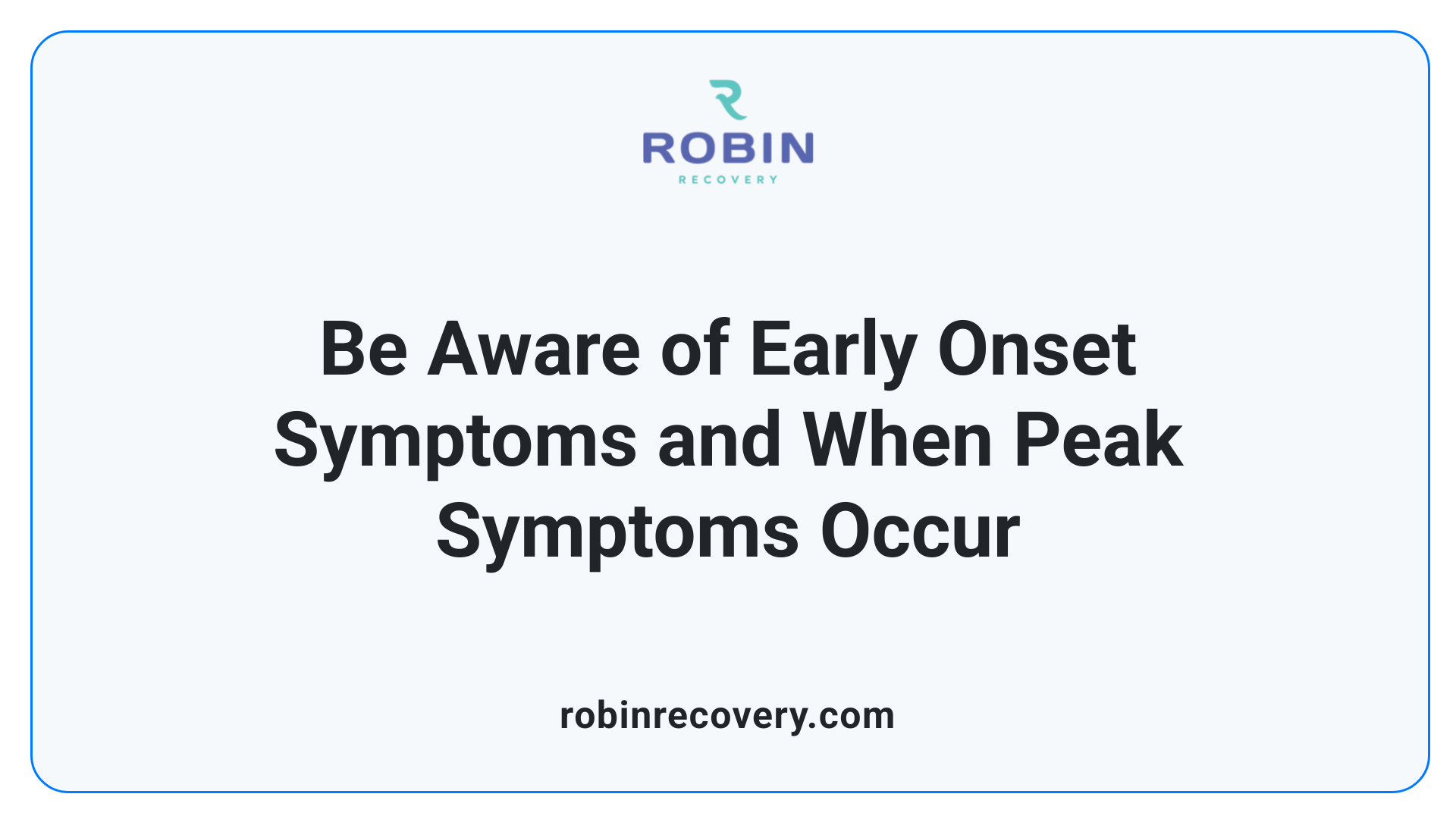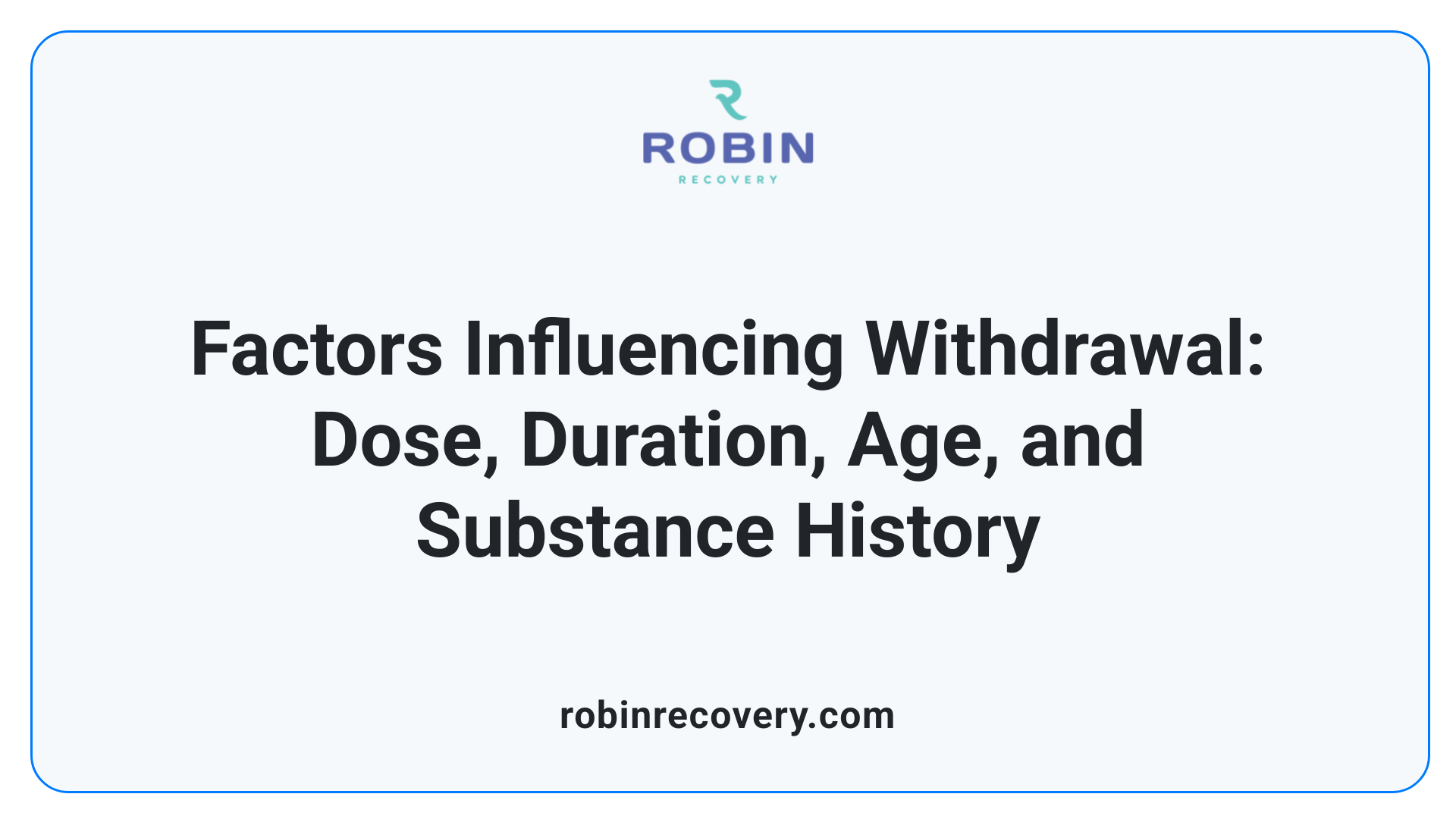Withdrawal Signs of Gabapentin Addiction

Introduction to Gabapentin Dependence and Withdrawal
Gabapentin, commonly prescribed for nerve pain, seizures, and mental health conditions, carries a risk of dependence, especially when used long-term or in high doses. Discontinuing gabapentin abruptly can lead to a spectrum of withdrawal symptoms that range from mild discomfort to severe medical emergencies. Recognizing these signs early and understanding the withdrawal process are crucial for safe management and effective treatment.
Recognizing the Common Signs and Symptoms of Gabapentin Withdrawal

What are the common signs and symptoms of gabapentin withdrawal?
Gabapentin withdrawal presents with a variety of signs and symptoms, reflecting both psychological and physical effects. Common psychological symptoms include heightened anxiety, agitation, irritability, and difficulty sleeping, often leading to feelings of restlessness. Physical symptoms frequently experienced are nausea, vomiting, headaches, muscle pain, excessive sweating, tremors, dizziness, and an increased heart rate or blood pressure.
Neurological manifestations can occur, especially if the medication is stopped abruptly in individuals with a seizure history. These include seizures and hallucinations, which are serious complications requiring immediate medical attention.
The onset of withdrawal symptoms can occur as early as within 12 hours and up to 48 hours after cessation. The peak of symptoms usually happens between 2 to 7 days after stopping, lasting overall up to 10 days. During this period, individuals may also experience fatigue, mood disturbances, and mild physical discomfort.
Because withdrawal severity varies depending on dosage and duration of use, careful medical supervision is crucial. Proper tapering over several weeks can diminish both the intensity and duration of these symptoms, ensuring safer discontinuation.
The Pharmacological and Neurochemical Foundations of Withdrawal

Gabapentin’s action on GABA receptors and its impact on dependency and withdrawal
Gabapentin, commonly known by the brand name Neurontin, functions primarily by affecting the GABA (gamma-aminobutyric acid) system in the brain. Although it does not directly bind to GABA receptors, it increases GABA synthesis and influences GABAergic activity, leading to enhanced inhibitory effects in neural circuits. Over time, consistent use—especially at high doses (up to 8000 mg/day)—can cause the brain to adapt to these heightened GABA activities, resulting in physiological dependence.
When gabapentin use is abruptly discontinued, the sudden loss of this GABAergic modulation causes a state of hyperexcitability. This state manifests through withdrawal symptoms such as anxiety, agitation, restlessness, irritability, and in severe cases, seizures. Dependence and withdrawal are more likely in individuals who misuse the drug recreationally or abuse it at doses exceeding 3000 mg daily, reflecting their higher risk for significant neurochemical dependence.
Comparison to alcohol and benzodiazepine withdrawal due to GABA modulation
The withdrawal syndrome associated with gabapentin resembles that of alcohol and benzodiazepines, which also modulate GABA receptors. Both alcohol and benzodiazepines enhance GABA-mediated inhibitory neurotransmission, and cessation can lead to similar neurochemical rebound phenomena. The shared pathway involves a reduction in inhibitory signaling and an increase in neural excitability.
Drugs like benzodiazepines and alcohol, when withdrawn suddenly, can trigger severe symptoms like panic attacks, hallucinations, seizures, and in extreme cases, status epilepticus. Similarly, abrupt cessation of gabapentin—though not classified as a benzodiazepine—may produce comparable severe withdrawal effects, highlighting their common mechanism through GABA system modulation.
The neurochemical basis of withdrawal symptoms, including hyperexcitability and seizure risk
The main neurochemical change during gabapentin withdrawal centers on the decrease of GABA activity and the imbalance between excitatory and inhibitory neurotransmitters in the brain. This shift results in a state of hyperexcitability, where neurons become more prone to firing abnormally.
Symptoms such as tremors, muscle spasms, headaches, elevated heart rate, and blood pressure are physiological signs of this increased excitability. Most critically, this neurochemical imbalance heightens the risk of seizures, including severe and potentially life-threatening status epilepticus.
This understanding emphasizes the importance of careful management when stopping gabapentin—preferably through gradual tapering—to allow the brain’s neurochemical systems to gradually readjust and reduce the risk of severe neurological complications.
The role of individual factors such as dose, duration of use, age, and substance misuse history
Several individual factors influence the severity and duration of withdrawal symptoms from gabapentin. Higher doses—particularly those exceeding 3000 mg daily—combined with prolonged use (beyond three weeks), significantly increase dependence and withdrawal risks.
Older adults are especially vulnerable, as their brains may adapt more slowly, and they often have comorbidities that complicate withdrawal management.
A history of substance misuse, including alcohol, cocaine, or opioids, also elevates the likelihood of severe dependence and withdrawal symptoms. Such individuals are more prone to experience intense psychological symptoms like depression and anxiety, as well as physical symptoms including seizures, sweating, and muscle pain.
These factors underscore the necessity for personalized tapering schedules under professional supervision, with careful consideration of the patient’s medication history, age, and dosage used.
Aspect Impact Additional Notes Dose Higher doses increase dependence risk >3000 mg/day elevates withdrawal severity Duration of use Longer duration correlates with more severe withdrawal Use beyond 3 weeks is common in withdrawal cases Age Older adults face greater risks Slower neurochemical readjustment Substance misuse history Higher vulnerability to severe withdrawal Cases often involve prior alcohol or drug abuse
Understanding the neurochemical mechanisms behind gabapentin withdrawal helps clinicians tailor detoxification protocols, primarily through gradual tapering. This approach allows for smoother neurochemical readjustment, minimizes withdrawal severity, and reduces the risk of serious complications such as seizures.
Clinical and Scientific Perspectives on Withdrawal Risks and Patterns
What does clinical evidence show about the signs and severity of gabapentin withdrawal?
Clinical case reports and literature review highlight that dependence on gabapentin can lead to a range of withdrawal symptoms, particularly in individuals using high doses or with a history of substance misuse. Symptoms range from physical discomfort like headaches, nausea, and muscle pain to severe neurological and psychological effects such as seizures, hallucinations, and marked emotional distress.
Many cases involve people consuming more than 3000 mg daily (up to 8000 mg), often for at least three weeks. These cases frequently include individuals with prior alcohol, cocaine, or opioid abuse. During withdrawal, patients have experienced serious complications, including the risk of seizures, psychosis, and relapse into substance abuse. Such findings stress the critical need for cautious management and personalized tapering schedules, accompanied by thorough medical monitoring.
The severity of withdrawal can vary widely but tends to intensify with higher dosages and longer periods of use. Symptoms typically peak within the first week, manifesting as severe anxiety, agitation, depression, and physical discomfort such as muscle pain and increased heart rate. Psychological disturbances like confusion and disorientation can also be observed, reflecting the profound impact of withdrawal on brain function.
Are there specific demographics that are at increased risk for severe withdrawal?
Research indicates that certain groups are more vulnerable to serious withdrawal effects. Older adults, due to generally reduced physiological resilience, are at higher risk of experiencing severe symptoms such as seizures and hallucinations.
Additionally, individuals with a history of substance misuse, particularly alcohol, cocaine, or opioids, tend to experience more intense and complicated withdrawal processes. The presence of these prior dependencies often correlates with a greater likelihood of physical dependence on gabapentin.
The dose and duration of use are crucial factors influencing withdrawal severity. Patients taking more than 3000 mg daily are significantly more at risk of experiencing adverse effects, which underscores the importance of medical supervision during discontinuation.
In summary, these insights emphasize that personalized, carefully monitored withdrawal protocols are essential for this demographic to prevent potentially life-threatening complications.
Conclusion: Ensuring Safe Discontinuation and Recovery
Gabapentin dependence and withdrawal pose significant health risks if not managed appropriately. Awareness of the symptoms—from psychological distress to severe neurological complications—is critical for individuals and healthcare providers. The safest way to discontinue gabapentin involves a carefully planned tapering schedule under medical supervision, tailored to the individual's dose, duration of use, and health profile. Supportive therapies, ongoing monitoring, and professional care are essential components to prevent withdrawal complications, including seizures and mental health crises. Education about these risks can help patients discontinue medications safely, reduce potential relapses, and promote long-term recovery.
References
- National Helpline for Mental Health, Drug, Alcohol Issues | SAMHSA
- Gabapentin Withdrawal Symptoms, Signs & Side Effects
- Gabapentin Withdrawal Timeline: Signs, Symptoms + Treatment
- Gabapentin: Abuse, Dependence, and Withdrawal - PubMed
- What Are the Signs of Gabapentin Withdrawal? - Pride Institute
- Gabapentin Withdrawal: Case Report in an Older Adult and Review ...
- Common questions about gabapentin - NHS
